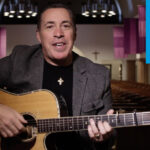The pope wants to know what you think about marriage and family life today. Is cohabitation becoming accepted even among Catholics? Do divorced Catholics wish there were a simpler way they could enter a second marriage? What help do families need in passing on the faith?
And this: The Church officially teaches that contraception is always a sin because every act of intercourse must be “open to the transmission of life.” Is this teaching accepted? By you? By other Catholics?
This is a sample of the way we are being asked today to help Church leadership with a re-examination of Catholic teaching on marriage, family and sexuality.
Pope Francis has scheduled a world Synod of Bishops for next October, with a second session in 2015. The topic is “Pastoral challenges to the family,” and bishops around the world are asked to share the synod’s questions “as widely as possible so that input from local sources can be received.” In the Davenport Diocese, Bishop Martin Amos has posted all of the questions on the diocesan web site and asked for responses by Dec. 1. The web address is www.davenport
diocese.org.
The questions are meant to be considered in a context of respect for Church tradition and Scripture. They require a thoughtful response, not quick top-of-the-head reaction. They also ask for something more than uncritical acceptance of current trends in behavior and thinking about family life and sexuality.
This is an historic opportunity to see what happens when the pastors of the Church become serious about hearing the sensus fidelium: the sense of the faithful.
Before getting into that survey it would be good to think about faith. Ours is not simply propositions in documents and catechisms. It is a relationship with Jesus, filtered through the Gospel, the sacraments, and a long history. It is a living thing, carried out in both the personal, intimate dimension of life and in the social relations, the communities, the families we build. What does that living faith look like? The synod on the family will, for the first time, gather raw data across the universal Church for a rough answer to that question.
Not that a survey alone will determine anything. But there will be a new voice in the deliberations and new influence in the judgments that go into Church teaching. Pope Francis and the bishops will have a better idea of how close or far we are from being a company of saints. They will see better how conditions and influences of modern life test Christian tradition — influences such as widespread cohabitation and sex without commitment.
Who makes the meaning in our lives? How much of it is the Church, the Gospel, and how much the fashions of the time? Are we, really, People of God?
This survey for the synod is not scientific: it won’t give a full, accurate picture even of answers to the questions it asks. For that, a carefully constructed sample of worldwide Catholicism would be needed. Still, the fact that this effort is being made tells us a new mood exists at the center of the Church. We are less interested in rooting out dissent, not trying to silence people with hard questions. Now we face the questions, the struggle, the gaps between where we are and the call that invites us into what we term eternal life.
Frank Wessling
1 thought on “An opportunity to reflect on being Catholic”
Comments are closed.











When it asks if teachings are accepted by me or other Catholics, the editorial goes to the heart of the questionnaire (and yes, I have read and responded to all questions that do not require a pastor’s experience to respond). The responses, as the editorial states, will be considered in the light of Scripture and Church tradition (the Church existed before the New Testament). It could not be other wise and still be the Church.
It is a questionnaire, not an opinion poll and will if we respond, provide the synod members an unparalleled to understand how and if Catholics in the Catholics in the pews understand and respond to teachings. Will it change the teachings? No. Will it change the pastoral approach to teachings, very possibly.
Christianity is radical. Jesus continuously sought to bring people into the kingdom through repentance (which means to convert, to change one’s way of living and thinking). He was a shepherd and his concern was always the good of his sheep. Today we would say he was pastoral. He did not tell the woman caught in adultery that he accepted her adultery, but that he accepted her, and told her to go and sin no more. Not stones as the crowd was so eager for, but compassion. Changes in this Spirit could come from the synod.